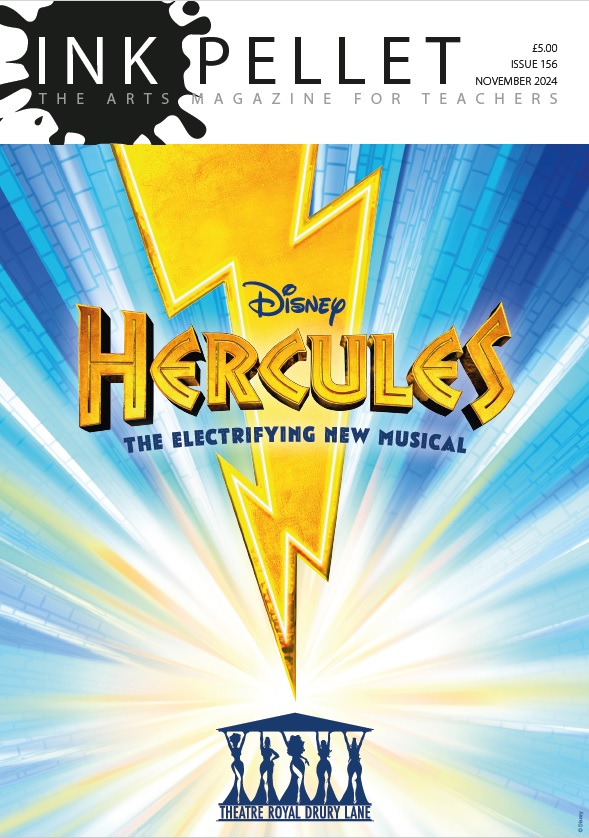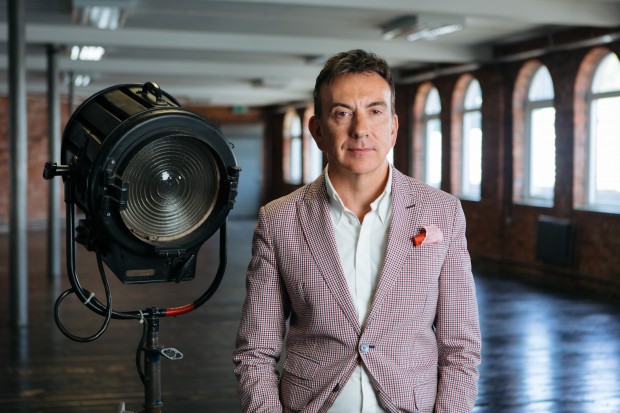Susan Elkin chats to Paul Roseby OBE, CEO and Artistic Director of the National Youth Theatre.
Where did you grow up? Dersingham in Norfolk where I was the youngest of four by a big margin so I was virtually an only child. I was borderline for the grammar school in Kings Lynn but actually went to a big comprehensive school in Hunstanton where I knew nobody. Inevitably I felt, to start with, like an outsider. I already knew I was gay and I’d always got on better with older people than my own age group.
It sounds a bit grim? Not really. It got better. Teachers, in those freer pre-National Curriculum days, became my lifeline. A good English teacher directed a school play. I got involved and it became an outlet. I learned to talk and improvise. Gradually I was accepted. I didn’t even get bullied because I could always talk my way out of a tight spot. In the end I achieved a sort of popularity and became Head Boy.
How did you first get involved with the National Youth Theatre? I was a student at Norwich City College doing Drama A level, then a new subject, along with English and Art. Another fine English teacher took us to London to see an NYT production of Hamlet at Shaw Theatre. It was a bit long and I didn’t understand it all, but I was impressed with the verse speaking. Afterwards the teacher suggested that I apply.
And they accepted you? Yes. But my parents couldn’t have paid for fees and accommodation. North West Norfolk County Council gave me a grant to cover both which was pretty enlightened. They were really pleased that a local boy had been auditioned for, an accepted by, a prestigious national organisation. Today I make absolutely sure NYT runs projects in NW Norfolk so that young people like me can benefit today. I really do want to put something back.
What did membership mean for you? It involved a three-week summer course and often a production and I did that for several years. I met amazing people in the school in Chalk Farm where the course was based and in the hostel in Hampstead we were billeted in. Black actor, Lenny James – brilliant – was in that first group, for instance. It was the first time I’d ever met non-white people, coming as I did from 1970s rural Norfolk.
So was that your professional training? Well, I thought about drama school but really wasn’t committed so I put myself about in various ways and started to get some work – while selling clothes from a bag (I was very good at that) to pay the rent. I went on to blag my way into presenting a radio show. Then came a TV presenting job and commercials. Eventually I bought a flat out of selling margarine. But I never stopped serious acting. I did a number of plays, some readings and a couple of tours and though it all, I learned my craft including a lot about self-presentation.”
And then you came full circle? I never lost touch with my “NYT family”. I did voluntary work for them when I could. Eventually I started directing the occasional NYT summer course. Rafe Spall was in my very first one. Then the job came up and I started at NYT as part-time joint artistic director (with John Wilson) in 2004. When John left four years later, I became full time CEO and artistic director.
Tell me about NYT today We have around 1200 members in any one year and we work very hard to help young people from all backgrounds to access and benefit from it. I refute the oft-made accusation of elitism, but I cannot pretend that there isn’t a tension between the fees our business model forces us to charge and the need to be free for those who need it most. We now run development projects, stage productions, a repertory company, go to Edinburgh and much more in addition to our core summer courses.
How do you choose the texts for members to work on? It’s important to make it relevant. Plays such as Evan Placey’s Consensual, which we commissioned, is, for example about a teacher/student relationship. We all know such liaisons are wrong, but some of the issues are not quite so black and white as we like to pretend and that’s what the play explores. Tanika Gupta’s play White Boy debates interracial tensions and knife crime. Plays like these have spin off outreach projects and we’ve worked a lot in schools and pupil referral units which is part of our community engagement. It’s a matter of diversifying in every possible way.
What about your ongoing flagship projects? The NYT’s Playing Up programme, now ten years old, brings together young people at risk and allows them to experiment and fail as well as succeed. Our mainstream education system stresses failure and therefore creates it. Then there’s NYT’s REP company, which is recruited annually from our membership and has been going for eight years. I was hearing a lot of young people saying that the only way to get into the profession was via drama school. Well that’s not true. Many fine actors in the past learned through the repertory system, so I thought we could recreate that by forming a small company to do three plays in repertory. It has worked very well although we’d like now to develop it further. I hate turning away talent.




No Comments
No comments yet.
Sorry, the comment form is closed at this time.